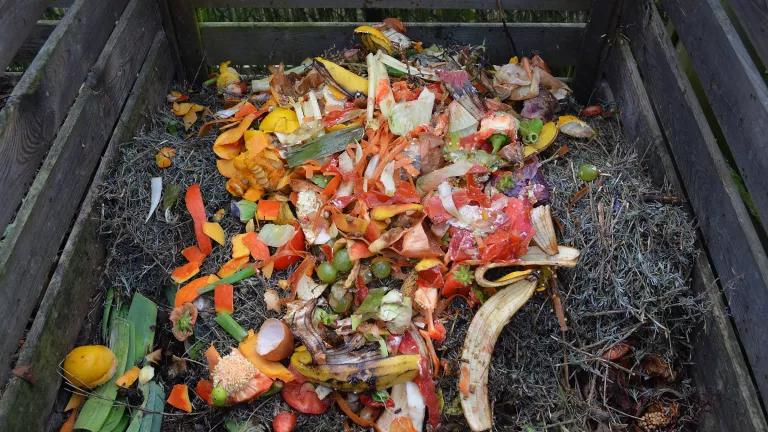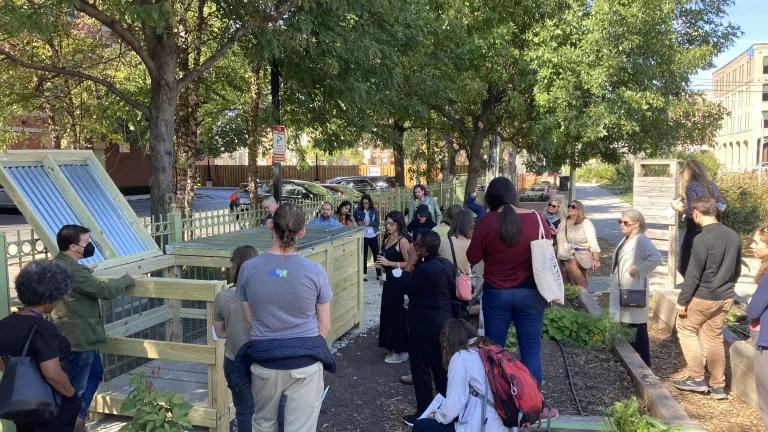
A public park on the banks of the Scioto River in Columbus, Ohio, with the city skyline in the distance.
iStock
In January, 2024, the city of Columbus, Ohio, one of NRDC’s Food Matters partners, has signed the Milan Urban Food Policy Pact (MUFFP), an international protocol aimed at addressing food-related issues at the urban level. The pact establishes a network of global cities dedicated to developing and implementing sustainable food systems. City leaders committed to the pact pledge to provide accessible and nutritious food to all, safeguard biodiversity, and combat food waste. To date, over 270 cities, of which more than 20 are from the U.S., including Cincinnati, Madison, and Chicago, have pledged their commitment to this agreement.
I am excited to see Columbus join the Milan Urban Food Policy Pact, advancing our city’s commitment to sustainability, waste reduction and food security. This is a pivotal step toward achieving our Climate Action Plan’s waste reduction goals while supporting the objectives outlined in the Columbus and Franklin County Local Food Action Plan. Together, we will build a healthier, equitable and more resilient city where every resident has the ability to access fresh, nutritious foods.
—Columbus Mayor Andrew J. Ginther
For the past several years, the city of Columbus has collaborated with NRDC through the Food Matters initiative. Following participation in the 2019 Milan Food Matters Study Tour, Columbus is taking action in four out of six of the MUFPP pillars: Food Waste, Sustainable Diets and Nutrition, Food Production, Food Supply and Distribution.
While engaged in this partnership, Columbus has undertaken several food waste reduction projects, including:
- Establishing a Central Ohio Food Waste Reduction Capacity Grant program, which supports community-driven initiatives aligned with the priorities of the Central Ohio Food Waste Initiative (COFWI), a coalition of diverse organizations working collaboratively to halve food waste in the region by 2030. In 2023, $36,800 was awarded to eight organizations throughout central Ohio working to address food waste.
- Launching a Food Waste Drop-Off Pilot Program that enabled over a thousand Columbus residents to drop off food scraps to be composted. The pilot’s success led to the establishment of three drop-off sites for food scraps, now available to all city residents.
- Sustaining cross-agency collaboration on food waste reduction, particularly with Solid Waste Authority of Central Ohio (SWACO) and Franklin County; this collaboration has further strengthened the central Ohio region's efforts to reduce food waste 50% by 2030.
The city of Columbus’s decision to sign on to MUFPP helps foster global collaboration to share resources, exchange knowledge, address common challenges, and achieve shared goals in sustainable food practices. The commitment to addressing systems-level issues further elevates the policy efforts of the Columbus and Franklin County Local Food Action Plan, and the Climate Action Plan. Signing the agreement helps Columbus and other U.S cities to promote their food waste reduction efforts on a global scale. We look forward to continuing to support Columbus in its food waste reduction efforts, and to hearing more about the successes and opportunities arising from this agreement.




